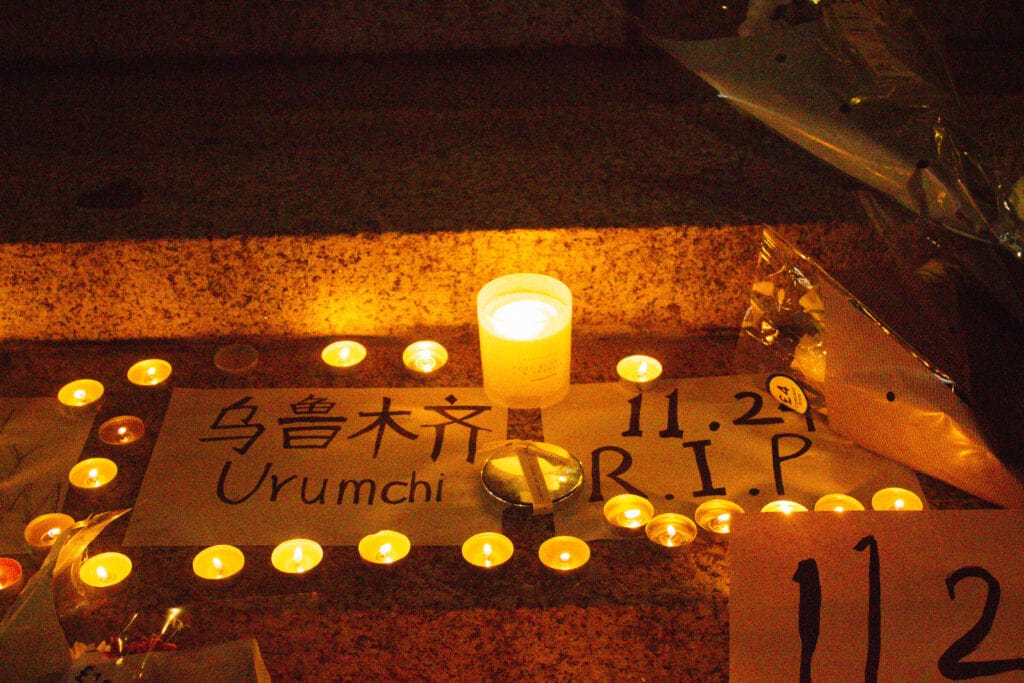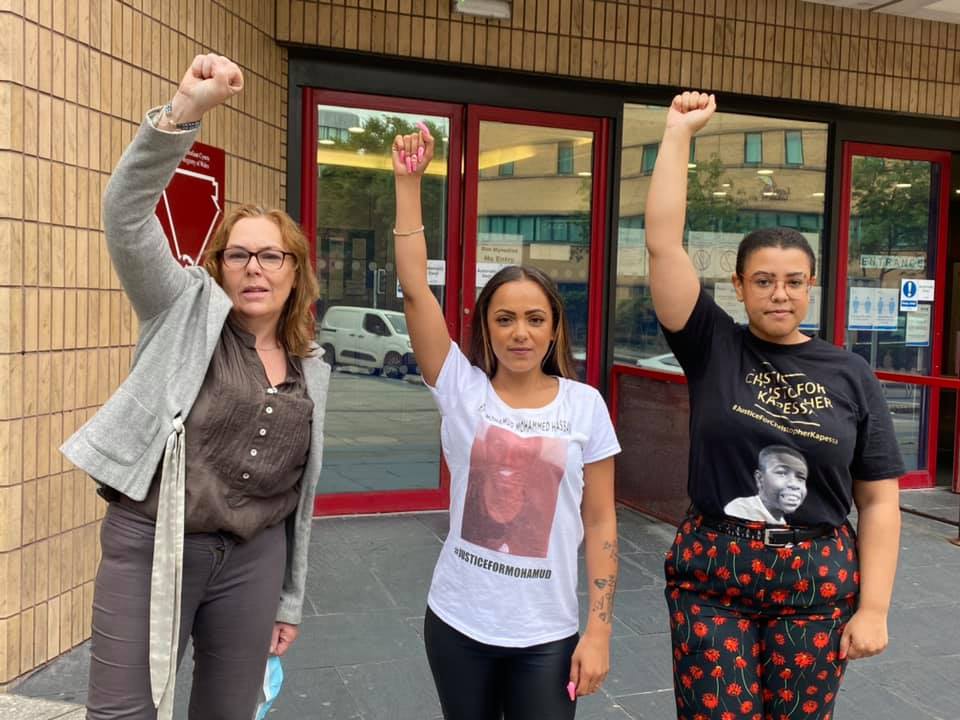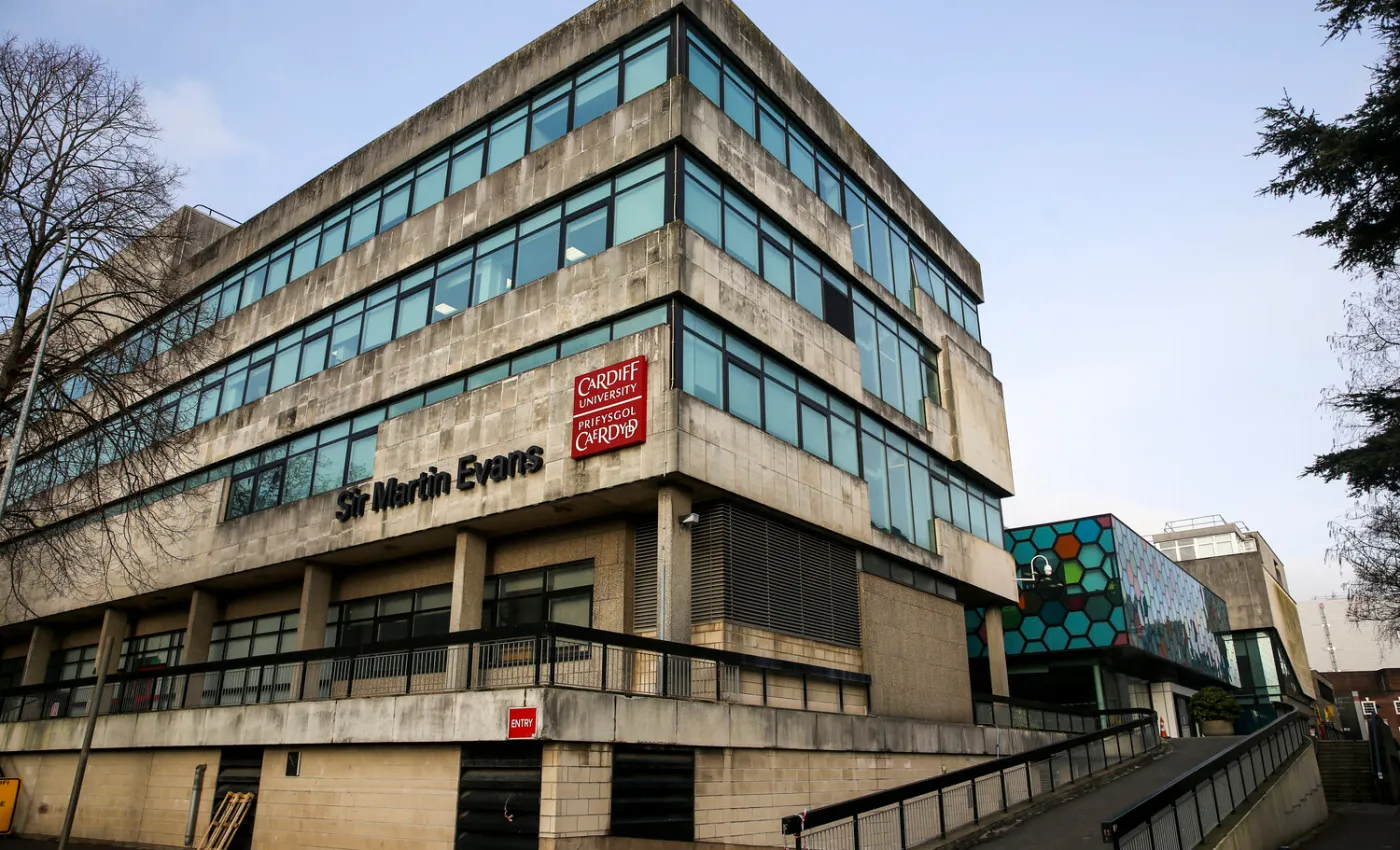
Cardiff Vigil Held For 10 Urumqi Dead As Unrest In China Grows
On Monday night, Chinese students in Cardiff led a vigil in memory of 10 people who died during a fire in a flat where residents had been under strict lockdown for months.
The Covid restrictions have triggered nationwide protests and walkouts by workers in China. Some protesters target not just the “zero Covid” strategy but the government itself.
By Ka Long Tung
Hundreds of workers climbed over the fences of a plant, a place where they worked and also lived. It was in Foxconn’s Zhengzhou plant, the world’s largest iPhone assembly site.
After fleeing the site, some left on foot and walked for miles to avoid being stopped by covid control measures which were being enforced on public transport by uniformed officers.
The incident happened in China last month as up to 200,000 workers were trapped in the plant, where some complained about the lack of food and health care under the strict government-imposed lockdown.
The Foxconn walkout was not the first incident that brought to the fore the growing frustration that Chinese people feel towards the state’s ’s severe lockdown measures.
And it was not the last.
In Mid-October, before the Foxconn strike and on the eve of Chinese Communist Party’s 20th Congress and e, a man displayed a poster against Xi Jinping’s potential third term as President and harsh Covid policy in Beijing.
There has not been news about the man after his arrest.
On 4th November, a 55-year-old woman was found dead inside a locked-down community complex. Her family members said they wanted to report that she suffered from anxiety and had shown suicidal tendencies. However, the community management office and helpline failed to respond in time.
Last Thursday (24 November), a fire in flats in Urumqi, the capital of Xinjiang region, took ten people’s lives. It was a place where lockdown measures had left residents stuck in their homes for more than three months.
The next day, people from the city took to the streets demanding an end to Covid lockdown measures.
Protests have since spread across China and made international headlines as they are seen as the first of their kind after the 1989 Tiananmen Square Protests.
Cardiff, among other places around the globe, saw Chinese people show solidarity with their counterparts back home.
On the evening Monday (28 November) in the capital, around 30 people attended the rally in front of the National Museum.
Wayne, not his real name, a Cardiff University graduate from China said that a more cautious approach to Covid was necessary at the beginning of the Covid outbreak. But he thought restrictions should be loosened after vaccines became available.
“I don’t agree with everything after that when the whole world is trying to get back to normal,” he said.
N, a student from Henan, said that his family income has been affected as an unpredicted lockdown means a sudden decrease in working time.
She feels like there is a mismatch between the harsh restrictions and the people’s needs.
“Covid is not as severe as before, but the policy is becoming more restrictive. It’s odd,” she said.
Chole, another Cardiff University graduate from Changzhou, said that her family started to save more money after the first lockdown as they realised that lockdown could come sooner or later meaning that their income would not be guaranteed.
“We are afraid to face lockdown again.”
U, a Cardiff University graduate from Fuzhou, Fujian, said: “In my city, everybody needs to test (for Covid) every day. They have to do a test before going to work.”
On 23rd October, residents in four areas in Fuzhou were required to undergo a Covid test. More than a million people were involved.
The measures followed the announcement that 20 new Covid cases were recorded on that day in the city.
The Chinese government also proposed the idea of a Health Code, an e-passport used to classify people’s risk levels based on information including travel history, residence and medical records, as early as February 2020.
People have to use their Health Code to go to work, access public spaces and take transportation. But the Health Code has been suspected as a way for authorities to track individuals’ records and restrict their movement.
In June, more than 200 people were planning to travel to Zhengzhou to protest against the government, but were stopped from travelling because of the Health Code. It was later found to be manipulated by officials aiming to silence dissent.
At the time when they were ready to travel to Zhengzhou, the colours shown on their Health Code were changed, meaning that they could no longer travel to the protest.
Anger was expressed online as people suspected that officials were involved. The outcry seemed to be strong enough to force the regime to react. Five officials in Zhengzhou were punished in June.
The anger came since mid-April when thousands of Chinese people could not access their savings at four rural banks which threatened their livelihoods.
The saga continued until July when more than 1,000 depositors successfully gathered outside the Zhengzhou branch of the country’s central bank. However, some were dragged down the stairs and beaten by security officers.
Talking about this event in her hometown, N said that the Health Code was used to restrict people’s ability to express their dissatisfaction.
Some of the demonstrators in Cardiff mentioned the lockdown in Shanghai, which happened almost half a year ago, but still surprised many given that Shanghai is an economic hub and people didn’t expect the Chinese government to enforce a near-total lockdown.
The two-month lockdown saw people unable to access enough food and necessities. However, voices from people were repressed by the state.. A video recording Shanghai people’s anger and dissatisfaction was banned on Chinese social media.
While the people were living under the state-imposed “zero-Covid” measures, Xi Jinping, General Secretary of the ruling Communist Party, unsurprisingly secured himself a third term as the President of the country on 23 October – about one week after the imposition of lockdown on Foxconn’s plant.
The harsh working environment inside Foxconn is not new as the company has a history of causing mental health problems for its employees. But the walkout last week has shown how vulnerable workers could be when in the face of the harsh “zero-Covid” policy.
Eli Friedman, a labour scholar from Cornell University, told Democracy Now! that the Foxconn workers were in “unsafe conditions”. “They ran for the exits. Their employer was not letting them, so they literally just jumped over the fences.”
He also said that the treatment towards the workers involved more parties than just the Chinese government.
“It’s (the Foxconn’s incident) also really important because what Foxconn highlights is that while the zero-COVID policy is implemented by the Chinese government, Xi Jinping personally takes responsibility for it, that all of these multinational corporations, including America’s most valuable corporations, like Apple and Tesla, are implicated in this.”
Earlier this month, before the mass protests across the country over the weekend, workers at a textile compound in Guangzhou also staged a protest amid lockdowns.
They broke lockdown barriers and checkpoints and marched. However, after some 20 minutes, police arrived and workers were sent back to quarantine.
The wave of protests in China saw protesters not only ask for the cancellation of the Covid policy, but the downfall of the government change of the regime. Slogans like “Xi Jinping, step down” and “Communist party, step down” have been shouted by some.
More than a dozen of Chinese cities saw protests over the weekend, including major cities like Beijing, Shanghai, Guangzhou, Chengdu and Wuhan.
In Shanghai, citizens confronted the police:
Students from at least 106 institutes in China and Hong Kong have taken action to show solidarity. And on Sunday, between 100 to 300 gathered outside the Chinese embassy in London in protest.
Although it is the biggest national uprising in decades, the prospect of the defiance is uncertain.
At the vigil in Cardiff U, was optimistic. “I think more people become courageous and they have encouraged others to do more but not just stay at home and don’t say any words.”
On the contrary, N feels that some people may have overestimated the power of the dissidents. She said the fact that workers and students, although both are protesting, have different demands is a barrier to pushing the movement forward.
Workers are unsatisfied with the Covid restrictions, according to her, but still trust the government. While some students look for more radical change.
“Change the whole system if we could,” N told voice.wales when asked about her demand.
Chole is not optimistic either. She thinks there will be more repressions from the government. “I don’t think we can change anything at this moment.”
Interviewees asked not to be named.






